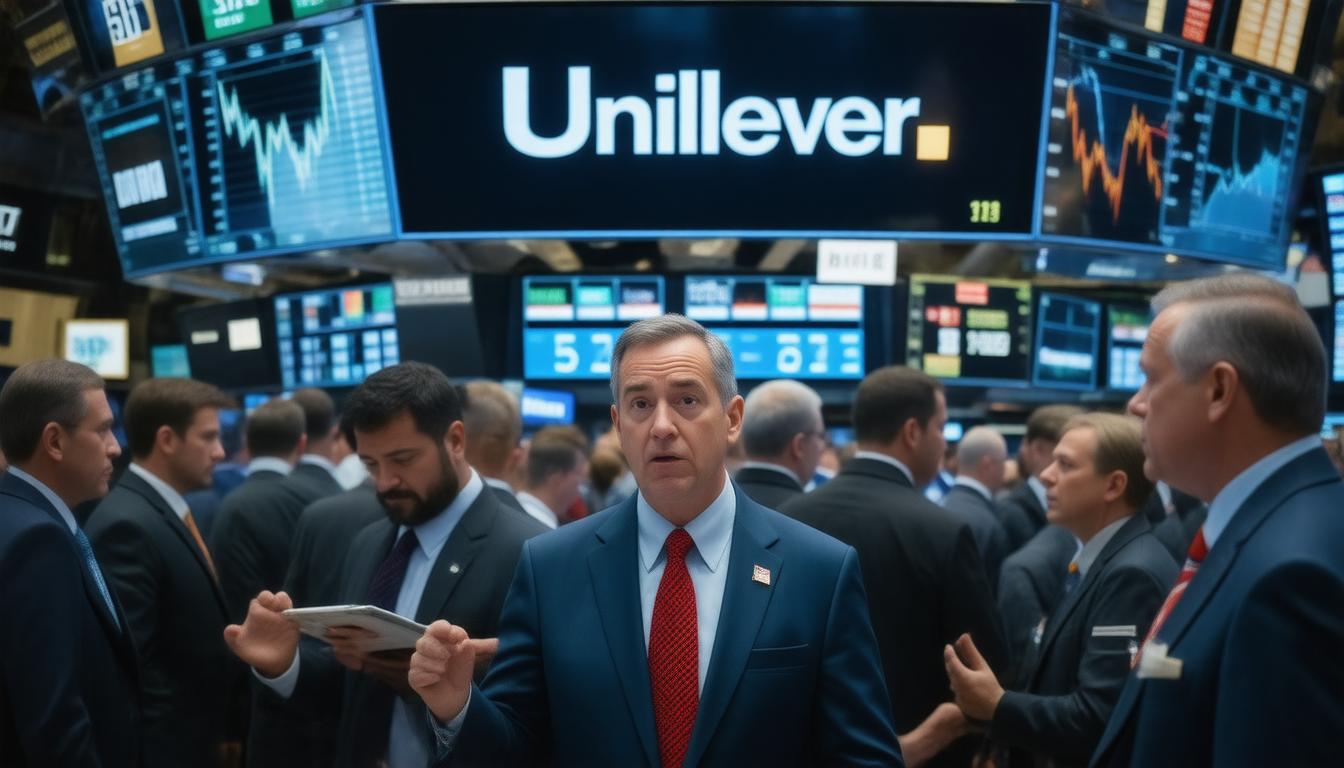In the dynamic landscape of consumer goods, Unilever’s 2024 financial results have sparked considerable interest and concern among investors.
While the company reported sales of €60.8 billion—slightly surpassing analyst expectations—the accompanying metrics, including organic sales growth and profit margins, tell a more nuanced story.
This article will delve into Unilever’s recent performance, offering insights into its growth strategies and the implications for its future as it navigates a mixed bag of results.
Key Takeaways
- Unilever’s 2024 results showed slightly better-than-expected sales but failed to excite investors, leading to a 5% drop in shares.
- The company’s cautious outlook for 2025 predicts organic sales growth of only 3-5%, with a weak start anticipated in early quarters.
- Despite a significant share buyback plan, uncertainties about growth catalysts and restructuring continue to dampen investor sentiment.
Overview of Unilever’s 2024 Financial Performance
Unilever’s financial performance in 2024 has revealed a mixed bag of results that, while meeting some expectations, left a significant number of investors unimpressed.
The multinational consumer goods company achieved sales of €60.8 billion, which slightly surpassed analyst projections; however, their organic sales growth of 4.2% fell just short of the anticipated 4.3%.
This led to a drop in share prices exceeding 5%, signaling investor unease.
Unilever reported an operating profit of €1
1.2 billion, reflecting a modest increase in its operating margin by 15 basis points year-over-year.
Earnings per share also saw a slight rise to €2.98, showcasing a 2.1% increase despite the overarching macroeconomic challenges.
Looking ahead, Unilever’s outlook for 2025 appears cautious, with projected organic sales growth between 3-5% but a weak start anticipated in the early quarters.
Analysts from RBC Capital Markets have indicated that first-half earnings forecasts may be adjusted downward.
Furthermore, Unilever’s strategy includes a demerger of its ice cream business, which will be guided by CEO Jean-Francois van Boxmeer and will be listed on various exchanges.
Although the company plans to execute a €1.5 billion share buyback prior to the ice cream spin-off, confidence among investors remains tepid due to uncertainties concerning growth drivers and impending restructuring repercussions.
Despite strides taken in strategic initiatives aimed at stabilizing margins, Unilever faces unrelenting pressure to boost its growth trajectory and enhance operational effectiveness.
Outlook and Future Strategies for Growth
As Unilever navigates its path forward, the company is actively implementing strategies designed to enhance its growth prospects and operational efficiency.
A key focus for Unilever is the pursuit of innovative product development, which aims to cater to evolving consumer preferences and emerging market trends.
By investing in research and development, Unilever hopes to capture new customer segments and expand its market share.
Additionally, the company is placing considerable emphasis on sustainability initiatives, particularly in reducing plastic waste and promoting environmentally friendly products, which resonate well with increasingly conscious consumers.
Furthermore, Unilever’s strategic demerger of the ice cream business is expected to streamline operations and allow for better resource allocation, positioning the company to adapt quickly to market changes.
Analysts suggest that these initiatives, combined with a commitment to enhancing digital marketing strategies and leveraging data analytics, could result in improved consumer engagement and sales performance, crucial for reversing recent investor fears.















